The Drama of Refugees - in No Man's Land
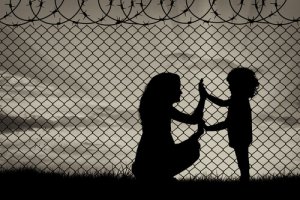
There was an attack. A mother takes her little boy’s hand. This is how he breathed his last breath, in the same arms of the person who saw his birth. Today a boy also separates from his family, he does not know when he will see them again. He says goodbye with tears that hold hope for a better future. Refugees.
The drama of refugees speaks to the pain of thousands of people. People who dream, who crave the same thing as you. Children who no longer know how to laugh because of their suffering.
Who are refugees?
They can be called forced immigrants because in their country of origin they are persecuted for reasons of race or ideology. Also, because their country does not have enough supplies or guarantee security for a decent life.
The refugees do not come to take our jobs. They do not come on a whim. They are not terrorists.
“You have to understand,
that no one puts their children in a boat
unless the water is safer than the land,
no one burns their palms
under trains beneath carriages…
no one spends days and nights in the stomach of a truck
feeding on newspaper unless the miles traveled
means something more than the journey”.
-Extract from “Home”, Revista Fogal-
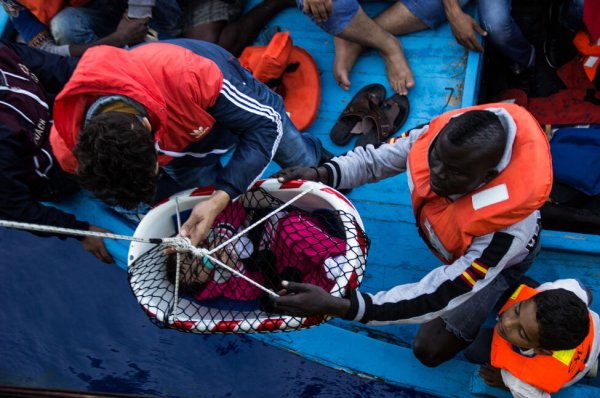
What are the psychological consequences of living as a refugee?
To live as a refugee is to live in no man’s land. You are unable to have a normal life in that place that was your home and you find, at the same time, that many countries where you seek asylum don’t want you. It causes high levels of anxiety or depression … while igniting feelings of revenge.
On top of that, add going through constant bombings. For all these reasons, a state of hyper-vigilance and chronic stress develops. Which often triggers more severe disorders such as schizophrenia or post-traumatic stress disorder.
It is not surprising that a person with social and psychological instability perform acts that may not be legal and ethical. Or is affiliated with that group that tells them they will provide security, salvation and justice for their loved ones. Who wouldn’t look for an ally when everything collapses around them?
However, we don’t see that. We are quick to see the speck in our brother’s eye, but not the log in our own! The extreme is gaining power. Are they not also people who have social and psychological uncertainty who are looking for security?
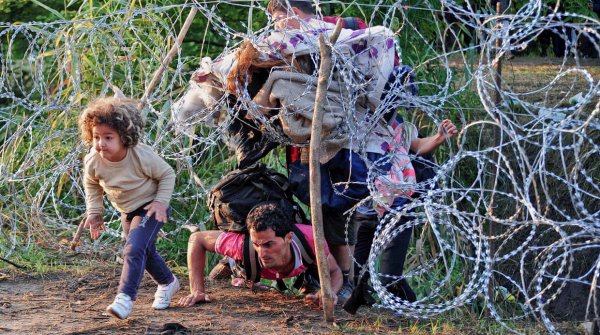
What is our role in the drama of refugees?
When the slightest possibility of overcoming a hellish journey in a boat, through a desert or years of pilgrimage in the hands of mafias is better than staying in one’s territory … neither fences, nor borders, decrees, police, barbed wire, or even the Mediterranean itself will be enough to stop a family that seeks a better life, a dignified life.
Looking the other way is not going to solve the problem. Financing the conflict will not help it either. Why are we not willing to receive refugees, but willing to contribute weapons? This double morality is concerning.
Why? Because what goes around, comes around; the farther we throw the boomerang, it will just come back with greater speed. This happens if we refuse to the crude reality of this massive exodus. Or if we do not deny its existence, but do not accept it in our countries, like the US is doing. Or after accepting and receiving refugees, but not including them in our society.
We need to accept and include refugees in society
If we only do one of the above and not all, we are creating ticking time bombs. What would you do if someone destroyed your home, kidnapped your child, or bombed your family?
What would you do if you had lost everything and had no chance to access something better? What would you do if you felt helpless before everything that happened to you? If you had the feeling that everything that everyone around you knew what was happening and didn’t do anything?
The answer is quite simple. At the point where your life has no meaning: you destroy yourself, you seek revenge or salvation. It is at this point that our involvement is so important.
It has been shown that most terrorist attacks have not been carried out by “terrible foreigners who have come to kill us all,” but by citizens of the country.
The second generation has not felt welcomed by their adopted country. They were doubly rejected for not being recognized as true French or German or US citizens, but neither Syrian, Iraqi, Somalian, etc. People who are simply friends or followers of people who would like to use them as weapons.
It is here, in this no-man’s land, in this lack of identity and belonging that people start to feel like it’s “every man for himself”.
We are not better or different than others … and sometimes we forget
It seems that we no longer remember. Only 76 years ago, 465,000 Spaniards crossed the French border seeking asylum to escape the civil war. Of them, 220,000 would never return to Spain.
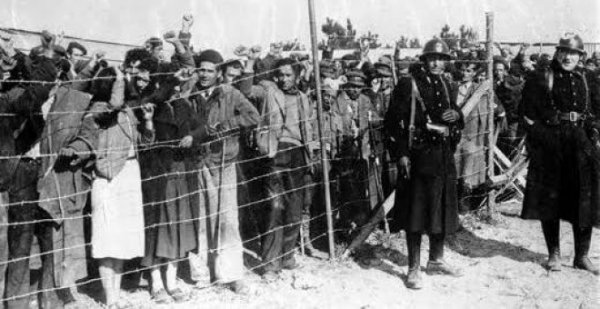
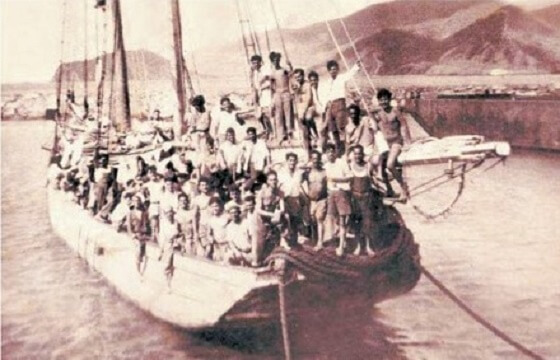
Illegal Spanish immigrants, arriving on the coasts of Venezuela (1949)
But it is even more striking if we stop to observe ourselves a little. Our young people leave. They go to the US, China, France, Ireland … they go in search of a better future. This immigration story could be theirs, yours, or any of ours.
It is up to us to make our voices heard for those who have drowned their cries for help in tears. To the more than 10,000 children who have gone missing in Europe, with their families hoping they will find them again. And many others who sell their bodies in refugee camps in exchange for their life.
UNICEF states that during 2015 there were almost 1,500 serious violations against minors, including murder, mutilation, recruitment or kidnapping, among others.
Of these, 400 cases were children found dead, and almost 500 of these children were mutilated. Are these children also terrorists? Please allow them the benefit of the doubt.
The easiest exercise to help is to open our mind and heart to our peers.
This text is provided for informational purposes only and does not replace consultation with a professional. If in doubt, consult your specialist.








